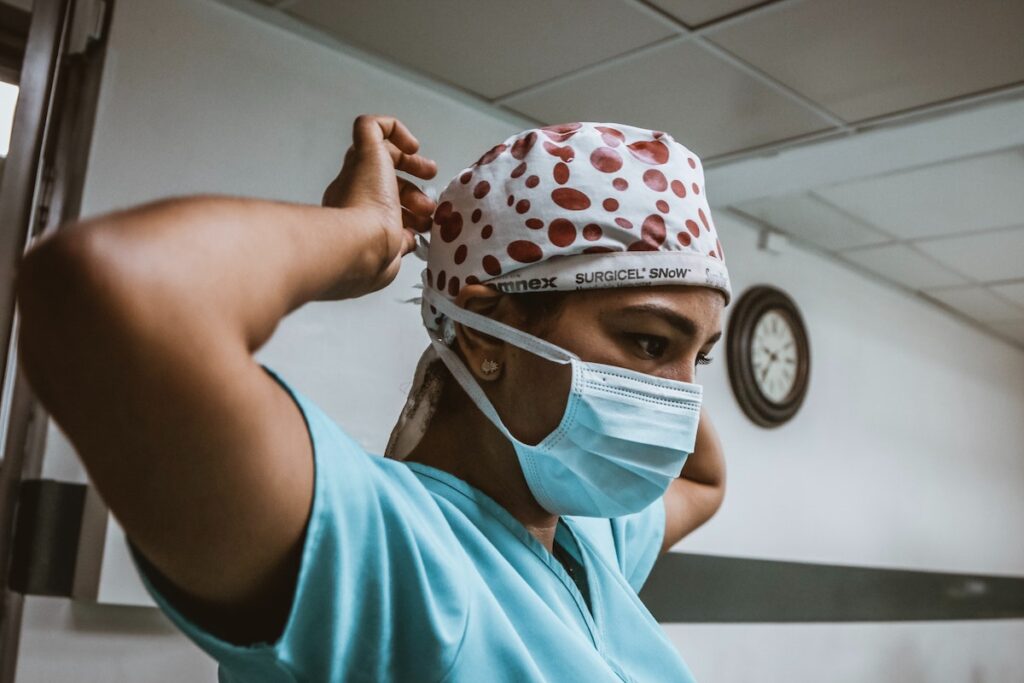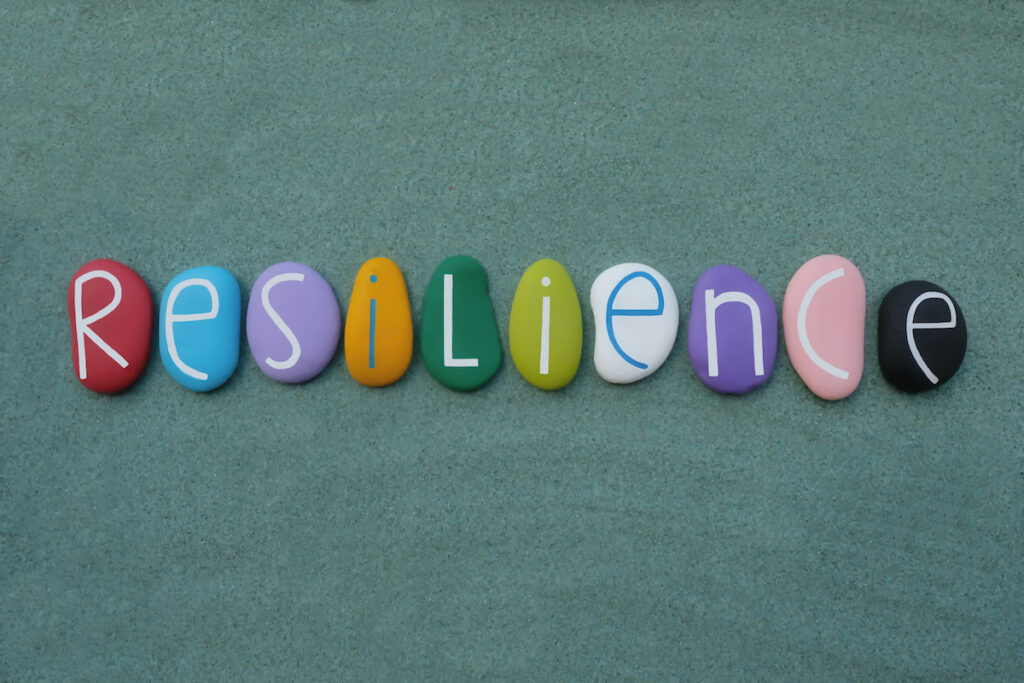
It is now well established from several studies that doctors often face several mental health challenges, such as depression and anxiety (Kinman et al., 2018). Covid-19 has been particularly demanding for the health workforce, with patients requiring treatment increasing, lack of PPE, and perceived risk of infection (Galbraith et al., 2020). This situation has, unfortunately, impacted the wellbeing of many health workers. ICU staff have reported high rates of mental illness and self-harm ideation, with 45% reporting symptoms of PTSD, depression, or anxiety (Seif, 2021). It is, therefore, imperative to focus on the wellbeing of the health workforce in pressure situations such as a health crisis (Tam et al., 2004).
Within the health workforce, junior doctors are a group that has faced unique challenges during the pandemic, such as adapting to new ways of working and risk of moral injury (Behrman et al., 2020). Junior doctors are also under-researched, with a lack of universal interventions available and the existing ones of poor quality (McCloud, 2020). Evidence highlights that trainee doctors are afraid of revealing their vulnerability even in the most challenging times (Stavrou, 2020). Collectively these studies support the notion that junior doctors are an at-risk group that needs support, particularly during health crises (Pandey et al., 2020). In addition, no research has conducted interviews of junior doctors and their working experiences during Covid-19.
It’s not a surprise that the present study aimed to explore the experiences of junior doctors working during the COVID-19 pandemic in the UK.

Junior doctors were particularly affected by working during the Covid-19 pandemic, with less experience and lack of training.
Methods
This qualitative study was part of a more extensive mixed-methods study exploring junior doctors’ perceptions of stress and distress. The National Health Service of England (NHS) was used as the setting.
A total of 456 junior doctors were invited to complete a questionnaire exploring psychological distress and suicidality. A purposive sampling frame was employed to recruit those that yielded high scores in the Depression Anxiety and Stress Scales (DASS-21) and Paykel’s measures. Out of 27 potential participants, 15 (the majority (12) were female) agreed and consented to participate.
Semi-structured interviews were held during the second wave of Covid-19 cases in England. Interviews were conducted remotely via video or telephone. Transcripts were analysed using reflexive thematic analysis (Braun & Clarke, 2021), utilising an inductive, explicit, critical realist approach. Four members of the research team (including a junior doctor and academic GPs) provided feedback on six interviews, instigating a deeper analysis of the data. Finally, the authors also reported the use of patient and public involvement. A brief reflective piece on the author’s positioning within the research wrapped up this section.
Results
Three major themes emerged from the data: challenges of working during the COVID-19 pandemic; strategies for coping with the impact of COVID-19 on work; and the positive influence of Covid-19 on working practices. All participants spoke about COVID-19 and its positive and negative effects on their working conditions. A central concept in all themes was personal and organisational factors that affected their work during Covid-19.
Challenges of working during the COVID-19 pandemic
Participants felt helpless and powerless, attempting to do their job in unforeseen circumstances. The physical and psychological well-being of participants was overlooked. This lack of care was particularly problematic with the rapidly changing and uncertain working conditions. These circumstances were sources of stress for participants, who had increased working hours and responsibilities. Heightened anxiety and pressure led to patients and colleagues becoming more aggressive and irritable, negatively affecting working relationships. The impact of Covid was not only seen at work but also in their education. Changes in their exams were also a source of stress for participants. Participants worked in different specialties from their training, which instigated anxiety.
Strategies for coping with the impact of COVID-19
Participants reported utilising inadequate personal coping strategies. Using emotion and problem-focused coping was typical, yet, during the pandemic, they appeared less effective than pre-pandemic. Examples of these strategies included crying, stoicism, volunteering and self-support.
Positive impact of COVID-19 on working practices
Participants appraised some positive changes from Covid, such as team spirit, collaboration and lack of rotation. The ability to work remotely and reduced red tape were perceived as positive changes that came with Covid. Similarly, novel support initiatives were introduced by organisations. One participant reported that junior doctors were offered specialist support, albeit the working environment remained unpleasant.

Both positive and negative, individual and organisational challenges were faced by junior doctors during the pandemic.
Conclusions
The results of this study indicate that junior doctors experienced extreme challenges during the pandemic. Emotion and problem-focused coping strategies had mixed efficacy, and the psychological well-being of junior doctors was affected.
However, the results of this research support the idea that some positive changes also emerged from Covid-19, namely the additional support provided and the new ways of working (i.e., remote work) amidst other changes.

Everyday coping strategies were less effective during the pandemic than pre-pandemic, raising questions around alternative strategies in times of crisis.
Strengths and limitations
According to the author’s knowledge, this is the first study to explore the experiences of junior doctors working during the Covid-19 pandemic. The use of patient and public involvement is a particular strength, increasing the study’s relevance (Blackburn et al., 2018). Furthermore, there are some sensible recommendations included in the discussion, such as shifting from individual to organisational coping strategies. These may be of interest to researchers, clinicians and policy makers to improve the working conditions and psychological wellbeing of junior doctors and other healthcare professionals.
However, there are some limitations to consider. Firstly, the study is limited by the lack of information on whether participants’ ethnicity or culture affected their distress or mental health experiences. There is ample evidence that culture can impact the type of emotion-focused and problem-focused coping that an individual may use (Shekriladze et al., 2020). Furthermore, 39.8% of NHS junior doctors are from Asian, Black and Chinese backgrounds, among others (NHS, 2021). Moreover, the reflective piece is descriptive rather than a critical evaluation of how the researchers’ experiences could have impacted the findings. Finally, there is no mention of the funding source for this study. It would have been valuable to mention who provided the funding to rule out the risk of funding bias.
There is, therefore, a definite need for further research to uncover all these aspects, namely ethnicity and culture or including reflexivity in all aspects of the research process (Dodgson, 2019). Nevertheless, the study certainly adds to our understanding of the experiences of junior doctors working during the Covid-19 crisis in England.

Ethnicity and culture were not considered in this study, despite the crucial role these factors play in relation to coping strategies and resilience under pressure.
Implications for practice
Overall, the insights gained from this study may be of interest to researchers, clinicians and healthcare organisations.
Junior doctors and healthcare clinicians should be reassured that feeling afraid of being seen as vulnerable is common. Although the results were not meant to be generalised to all junior doctors, the results mirror previous research that states feelings of vulnerability in junior doctors (Stavrou, 2020). Therefore, health worker trainees must be encouraged to disclose their feelings and struggle with colleagues and supervisors, particularly in challenging times such as Covid-19. Organisations should provide support to facilitate this disclosure in an anonymised, non-judgemental manner. Organisations should also build and test contingency plans for potential global pandemics (Wenham et al., 2021) to mitigate the negative experiences of working in a health crisis, as well as implement the positive changes that the pandemic has brought.
In conclusion, I would like to personally show my gratitude to all doctors, scientists, NHS staff and other essential workers for the past two years. You have been the real heroes of this pandemic!

Future research could explore effective individual and organisational strategies to improve working conditions for health workers in times of crisis.
Statement of interests
None.
Links
Primary paper
Spiers, J., Buszewicz, M., Chew-Graham, C., Dunning, A., Taylor, A. K., Gopfert, A., van Hove, M., Teoh, K. R. H., Appleby, L., Martin, J., & Riley, R. (2021). What challenges did junior doctors face while working during the COVID-19 pandemic? A qualitative study. BMJ Open, 11(12), e056122. https://doi.org/10.1136/bmjopen-2021-056122
Other references
Behrman, S., Baruch, N., & Stegen, G. (2020). Peer support for junior doctors: a positive outcome of the COVID-19 pandemic? Future Healthcare Journal, 7(3), e64–e66. https://doi.org/10.7861/fhj.2020-0069
Birkbeck Institutional Research Online. (2018). What could make a difference to the mental health of UK doctors? A review of the research evidence. https://eprints.bbk.ac.uk/id/eprint/24540/
Blackburn, S., McLachlan, S., Jowett, S., Kinghorn, P., Gill, P., Higginbottom, A., Rhodes, C., Stevenson, F., & Jinks, C. (2018). The extent, quality and impact of patient and public involvement in primary care research: a mixed methods study. Research Involvement and Engagement, 4(1). https://doi.org/10.1186/s40900-018-0100-8
Braun, V., & Clarke, V. (2021). Conceptual and design thinking for thematic analysis. Qualitative Psychology. https://doi.org/10.1037/qup0000196
Dodgson, J. E. (2019). Reflexivity in Qualitative Research. Journal of Human Lactation, 35(2), 220–222. https://doi.org/10.1177/0890334419830990
Galbraith, N., Boyda, D., McFeeters, D., & Hassan, T. (2020). The mental health of doctors during the COVID-19 pandemic. BJPsych Bulletin, 45(2), 93–97. https://doi.org/10.1192/bjb.2020.44
National Health Service. (2020). NHS Workforce Statistics. https://digital.nhs.uk/data-and-information/publications/statistical/nhs-workforce-statistics/march-2020
Pandey, U., Corbett, G., Mohan, S., Reagu, S., Kumar, S., Farrell, T., & Lindow, S. (2020). Anxiety, Depression and Behavioural Changes in Junior Doctors and Medical Students Associated with the Coronavirus Pandemic: A Cross-Sectional Survey. The Journal of Obstetrics and Gynecology of India, 71(1), 33–37. https://doi.org/10.1007/s13224-020-01366-w
Shekriladze, I., Javakhishvili, N., & Chkhaidze, N. (2021). Culture Related Factors May Shape Coping During Pandemics. Frontiers in Psychology, 12. https://doi.org/10.3389/fpsyg.2021.634078
Tam, C. W. C., Pang, E. P. F., Lam, L. C. W., & Chiu, H. F. K. (2004). Severe acute respiratory syndrome (SARS) in Hong Kong in 2003: stress and psychological impact among frontline healthcare workers. Psychological Medicine, 34(7), 1197–1204. https://doi.org/10.1017/s0033291704002247
Wenham, C., Kavanagh, M., Torres, I., & Yamey, G. (2021). Preparing for the next pandemic. BMJ, n1295. https://doi.org/10.1136/bmj.n1295
